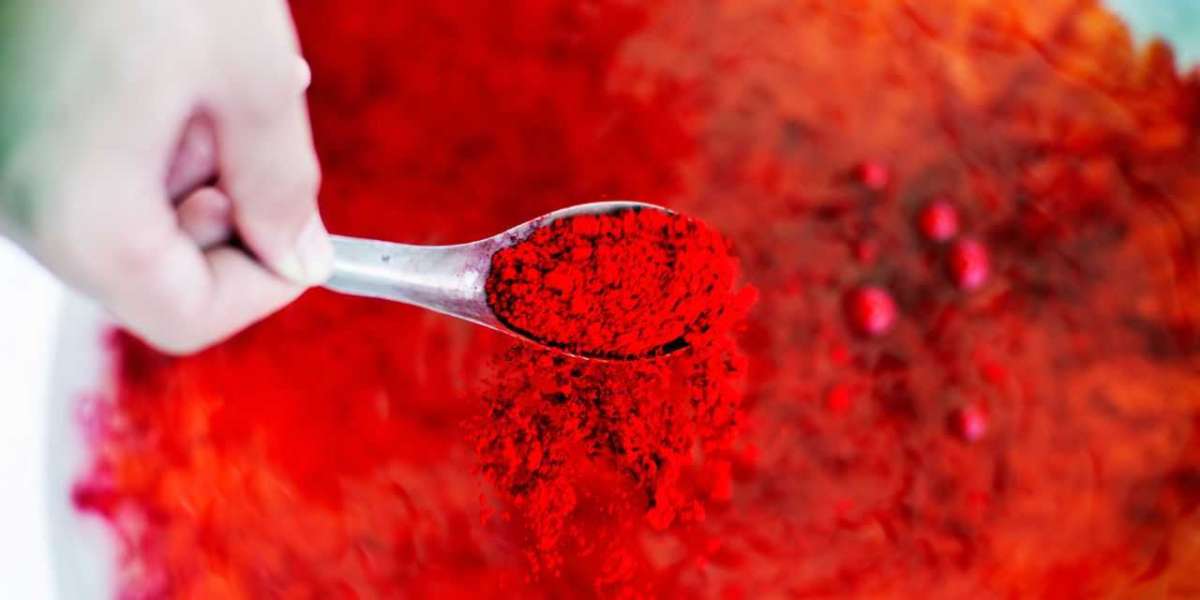In the ever-evolving world of textiles, color is more than a visual element—it's a vital part of brand identity, product appeal, and functionality. Behind every bold shirt, vibrant curtain, or deep-toned jacket lies the work of textile dyes. These dyes are the foundation of the fashion and fabric industries, offering a spectrum of shades to meet creative and commercial demands. But the value of a dye isn’t found solely in its pigment; it's in the services and support that come with it.
Modern manufacturing requires more than a product on a shelf. Producers rely on reliable chemical partners to deliver textile dyes and provide a wide range of technical, logistical, and sustainable services that streamline production and elevate quality.
The Purpose and Power of Textile Dyes
Textile dyes are specially formulated chemical compounds that impart color to fibers, yarns, and finished fabrics. Their success depends on how well they bond with specific fiber types—whether natural like cotton and wool, or synthetic like polyester and nylon. The type of dye used depends on the fabric and desired finish, with classifications including reactive dyes, vat dyes, acid dyes, disperse dyes, and direct dyes.
Each type has its strengths. Reactive dyes, for instance, form strong chemical bonds with cellulose fibers, offering exceptional wash fastness. Disperse dyes, meanwhile, are used for synthetic fibers and are known for their brilliant shades and heat resistance. These attributes are essential in both fashion and technical textiles.
Yet even the highest-grade dyes must be handled, stored, and applied with precision. That’s where specialized chemical services come in—to transform raw chemical compounds into high-performing, repeatable results.
Chemical Services Behind Successful Dyeing Operations
Dyeing is as much about chemistry as it is about color. Industrial clients depend on a network of services to guide them through the intricacies of textile dyes, ensuring the highest level of efficiency, consistency, and environmental responsibility. These services fall into several categories:
1. Custom Dye Formulation and Blending
Not every production line operates under the same parameters. Some use soft water; others rely on hard water. One facility might require low-temperature processes, while another may focus on energy efficiency. Chemical service providers tailor dye formulations to match each customer’s unique setup.
Through precise formulation and blending, providers help clients reach specific shade targets and performance standards. Adjustments in pH, dispersing agents, and auxiliaries can fine-tune how textile dyes interact with fibers, ensuring vibrant, uniform finishes.
2. Color Development and Shade Matching
For textile brands and exporters, color consistency is non-negotiable. Customers expect every batch to match perfectly—whether it’s for a fashion collection or a corporate uniform.
Chemical companies often operate advanced laboratories where sample dyeing and color development take place. Using color spectrophotometers and digital matching systems, they replicate target shades with pinpoint accuracy. Clients using textile dyes benefit from these services by reducing shade variation and production rework.
3. Technical Training and Application Support
It’s not just the dye that matters—it’s how it's used. The most dependable chemical service providers send trained experts to guide in-house staff. They review dyeing conditions, optimize machine settings, and offer suggestions for improving uptake and reducing chemical waste.
This hands-on technical assistance ensures that textile dyes are used correctly and economically, which not only improves quality but also increases output.
4. Environmental and Regulatory Compliance
Sustainability is more than a trend—it's a requirement. Today’s consumers and brands demand eco-conscious practices. That means using dyes with low environmental impact, proper effluent treatment, and transparent sourcing.
Many chemical service providers now offer eco-certified textile dyes, along with guidance on meeting global standards like OEKO-TEX®, ZDHC, GOTS, and REACH. These companies also assist with documentation, audits, and implementing safe waste management systems. The result is a more ethical and legally compliant manufacturing process.
5. Supply Chain and Inventory Support
In any manufacturing business, timing is everything. Downtime due to chemical shortages can disrupt entire production schedules. Chemical service providers with strong logistics infrastructure make sure that textile dyes arrive on time, every time.
Some providers even offer warehousing, stock level monitoring, and just-in-time delivery to keep manufacturing lines running without delays. By managing logistics, these partners reduce client risk and free up resources for other priorities.
Innovation and Sustainability in Textile Chemistry
The future of textile dyes lies in innovation. With the growing importance of sustainable textiles, chemical providers are investing in cleaner production methods and dyes made from renewable or biodegradable components. There’s a strong move toward dyes that require less water, work at lower temperatures, and leave minimal residue.
These eco-smart dyes reduce the environmental burden while maintaining—or even improving—performance. In some cases, chemical providers are also helping clients shift toward waterless dyeing or digital print dyeing technologies, opening new avenues for creativity and sustainability.
From zero-salt reactive dyes to biodegradable fixatives, the chemical services sector is creating practical solutions for modern-day challenges. This level of innovation ensures that manufacturers stay competitive while honoring their environmental commitments.
The Role of Trusted Partners
Behind every successful dyeing operation is a partner that understands more than just chemistry—it understands production realities, compliance risks, and market dynamics. Companies that specialize in textile dyes offer much more than color. They bring decades of experience, RD capability, and a commitment to helping clients thrive.
For instance, Sardar Chemicals is a name well-recognized in the industry for its holistic approach. With a robust portfolio of textile solutions, Sardar Chemicals assists its partners with everything from dye selection and technical support to environmental planning and product innovation. Their experience in handling various fiber types and textile applications makes them a reliable source for scalable, sustainable dyeing systems.
Quality Control and Process Monitoring
Maintaining the integrity of textile dyes through all stages—procurement, storage, application—is essential for a successful operation. Leading chemical service providers enforce strict quality controls to ensure that each batch meets required specs. They help set up in-plant quality protocols, train personnel in safe handling practices, and ensure traceability across the supply chain.
This comprehensive attention to quality reduces the chances of dye failures, costly reworks, or compliance issues. It creates a production environment where output is stable, predictable, and cost-effective.
Final Reflections on a Colorful Industry
The importance of textile dyes in Lahore cannot be overstated. They define the look and feel of fabrics, influence consumer choices, and impact brand perception. But their effectiveness relies heavily on the chemical services that surround them. In an industry where deadlines are tight and quality expectations are high, service-driven chemical partners offer the support manufacturers need to meet every challenge.
Through custom formulations, lab testing, expert guidance, and sustainability solutions, these partners transform dyes into dependable, value-adding tools. As the textile world continues to evolve, only those who invest in these holistic services will stay ahead of the curve—delivering products that don’t just meet expectations, but exceed them.






